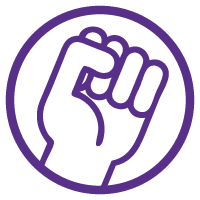
Breastfeeding Education and Advocacy Lecture Pack
How we talk about breastfeeding impacts how our messages are heard. This package provides an in depth look at the language we use, different learning styles, innovative teaching strategies, and how to broaden our audience to allow a wider reach for breastfeeding promotion and advocacy. Join our expert speakers to broaden your knowledge base and learn how to ensure that your message is reaching the right people and is being received in a way that will promote change.
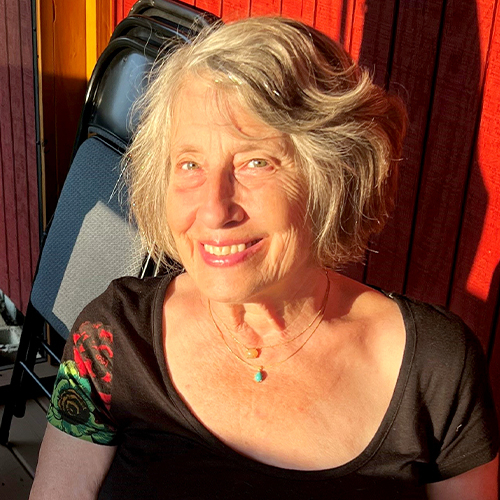

Nikki started as an LPN in 1971, got her RN and BSN, and a graduate degree. She is an author, a teacher, a holistic lactation consultant, a craniosacral therapy practitioner, and a baby body worker (teaching Infant Massage and TummyTime! She is mother to 2 wonderful (breastfed for a long time) daughters, wife to 3 interesting men, only one of whom was the right one for the past 37 years, Rafe!
Her publications include the books, Complementary and Alternative Medicine in Breastfeeding Therapy and A Breastfeeding Owner’s Manual; the monographs, “Benefits of Breastfeeding and Their Economic Impact” and “Sexuality and Breastfeeding” and the educational pamphlet “How to help yourself through labor”. She has been the reviews editor for the journal Clinical Lactation, and has worked as the lactation consultant for the division of Maternal, Child, and Family Health at the Philadelphia Department of Public Health since 2006.
Topic: Breastfeeding Counselling Concepts from Disciplines Outside the Maternity Ward - [View Abstract]
Topic: Tips and Tricks for Writing Breastfeeding Policy - [View Abstract]
Topic: Words That Work - [View Abstract]
Ojective 1: Identify 2 concepts central in counseling the pregnant woman;
Objective 2: Define responsive breastfeeding;
Objective 3: Engage in reflective practice about the words you use in counseling and teaching.
In the past, childbirth educators and breastfeeding helpers have given information that has inadvertently worked against breastfeeding exclusivity and duration. This presentation will address at least 4 common teachings and how they can reinforce perceived milk insufficiency and new mothers’ insecurity about milk supply. Strategies, evidence and scripts will be given to update breastfeeding education.
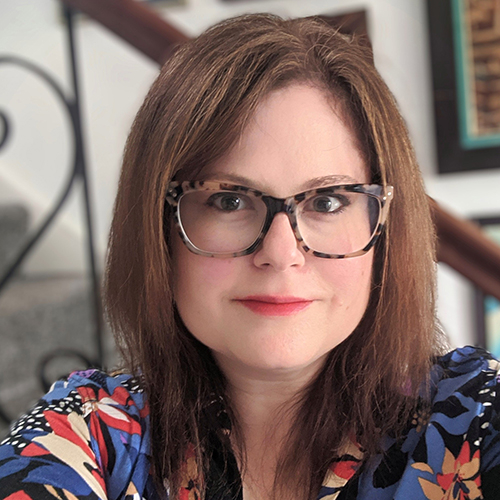

Tamara Drenttel Brand holds an MA in Near Eastern Studies from the University of Arizona and a Master’s in Public Health (MPH) from the American University of Beirut. She spent 10 years in the Middle East, where she worked as a public health practitioner, infant and maternal health consultant and an IBCLC. She has supported breastfeeding dyads from all over the world both in private practice and as a volunteer. In 2011, she founded and still actively facilitates “Mama 2 Mama Beirut Breastfeeding Support,” the largest breastfeeding peer support network in the Middle East (currently at 25k+ members). Additionally, she founded Galactablog, a professional group for lactation specialists and those aspiring-to-be (currently at 4.7k+ members) and has authored several articles for La Leche League’s monthly leader publications in both the Middle East and Ireland.
She is currently an international speaker on the topics dealing with breastfeeding in the Middle East, innovative lactation teaching strategies, working in resource-scarce settings, providing culturally sensitive lactation support, developing and implementing peer counselor training programs, mast cell disease and other related topics. Due to her own chronic health conditions, she has a special interest in educating others about mast cell disease and supporting those with chronic illnesses. She currently resides in a seaside village in Ireland with her family.
Topic: Contextualizing Breastfeeding in Lebanon - [View Abstract]
Topic: Lactation Education Outside the Box: Innovative Teaching Strategies to Engage Your Audience - [View Abstract]
Topic: Mast Cell Diseases and Lactation Care in the Post-Covid Era - [View Abstract]
Topic: Providing Culturally Sensitive Support for Breastfeeding Muslim Families - [View Abstract]
Topic: Reflections on a Breastfeeding Peer Counselor Program in Lebanon: Lessons Learned and Looking Forward - [View Abstract]
Objective 1: Name at least 2 benefits of interactive education;
b) Objective 2: Describe least 3 learning activities to utilize in lactation education;
Objective 3: Demonstrate at least 1 way to illustrate a wide, deep latch to your audience;
Objective 4: Describe how to create at least 1 DIY breastfeeding item.
Are you a lactation professional or health care provider looking for ways to engage your audience? Whether your audience is breastfeeding families, parents-to-be, peer counselors, volunteers, health care professionals or lactation specialists, then this presentation is for you! In it, I will show how creative solutions can overcome a lack of resources or technology to provide mothers and families with engaging and effective breastfeeding support. This session will cover innovative and interactive educational strategies and activities that can be used to capture your audience’s attention and to encourage them to retain vital information and strategies to help them breastfeed.
These concepts are practical and applicable to all types of settings, including but not limited to: breastfeeding support groups, lectures and presentations, training sessions, webinars, seminars and one-on-one lactation consultations. Moreover, they are easily modifiable to fit the needs of different populations and cultures. As many lactation professionals work in low-income communities or resource-poor settings that frequently lack many of the latest gadgets and expensive lactation aids, this presentation will offer demonstrations and tutorials of Do-It-Yourself (DIY) options that can ensure that breastfeeding mothers and families get the best support possible, even when resources are scarce.
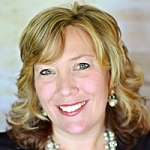

Christy Jo has over 25 years of teaching experience. She is passionate about teaching in ways that simplify learning. She has been awarded the United States Presidential Volunteer Award for her community service, the Phyllis Klaus Founder's Award for her contribution to the Mother/Baby bond and the Above and Beyond Award for innovative projects that exemplify the mission of Public Health. She has also been named Lactation Educator Faculty of the Year from Childbirth and Postpartum Professionals Association and earned their Visionary Award in 2015. Christy Jo is the author of Mommy Feeds Baby and co-author of Making Milk. She created the Grow Our Own Lactation Consultant/IBCLC Prep Course which has been used to train hundreds of students to become Lactation Consultants. She currently resides in California with her husband and three children. She continues to serve her community as a birth doula, Private Practice IBCLC, Health Educator for Public Health, and faculty for the CAPPA CLE© and Childbirth Educator Programs.
Topic: Enhanced Counseling Skills for the Lactation Educator - [View Abstract]
Topic: Expanding Our Audience to Gain Greater Appreciation and Acceptance of Breastfeeding - [View Abstract]
Topic: Sharing Your Wisdom: From Abstract Idea to Awesome Prenatal Breastfeeding Class - [View Abstract]
Topic: The Art of Communication: Simplifying Birth and Breastfeeding - [View Abstract]
Objective 1: List at least three reasons we need to begin to supply breastfeeding education to those who are not pregnant or planning on becoming pregnant;
Objective 2: Identify at least three relations to the breastfeeding mom that must be educated on the importance of breastfeeding;
Objective 3: Identify at least three additional groups or organizations that must be educated on the importance of breastfeeding.
As educators and health organizations, we mostly target prenatal women with the breastfeeding message and then are surprised at the push-back we receive from those who do not embrace breastfeeding. In order to tip the scale in breastfeeding acceptance, we must broaden our audience.
This presentation will focus on reaching a larger audience. We must project our message to the masses. It is crucial to share breastfeeding education to society, early and frequently. Breastfeeding education should begin in the school system and be geared for each age appropriately.
We must offer education in a way that each person and organization understands how it applies to them and their situation. For instance, employers will be more likely to embrace the employee that breastfeeds if they understand the far-reaching effects of breastfeeding. The lawmakers will be more likely to approve lactation laws if they comprehend the need for legislation. Partners will offer appropriate support if they receive the same education that is often reserved for the pregnant woman. This presentation will give suggestions of how to reach family, communities, professionals, and lawmakers with the breastfeeding message. When societies embrace breastfeeding, they will embrace breastfeeding women and see it as the norm.
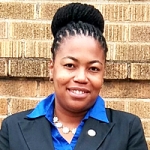

Mother of 6 breastfed children, Tytina is a Certified Lactation Counselor, La Leche League International Breastfeeding Peer Counselor and Program Administrator. Tytina is a Loving Support WIC Peer Counselor and Rush University Medical Center Mother’s Milk Club peer counselor. She is an International Center for Traditional Childbearing provisional Doula. She has 15 years of community-level maternal child health. Her affiliations include Chicago Region Breastfeeding Taskforce, March of Dimes, National Association of Professional and Peer Lactation Supporters of Color, Breastfeed Chicago, the United States Breastfeeding Committee, and GOLD Learning Professional Advisory Committee.
Objective 1: To incorporate quality lactation care, despite an individual’s ability to pay, in an effort to reduce infant morbidity and mortality;
Objective 2: Meet families where they are in regards to attitudes toward infant feeding;
Objective 3: View more ways of offering breastfeeding education.
This talk is to stress the importance of breastfeeding in communities where both finances and breastfeeding rates are low. These communities tend to have the highest infant mortality rates. Breastfeeding support programs are almost nonexistent due to lack of funding. This contributes to low initiation of breastfeeding. In these communities the title lactation consultant is foreign. Breastfeeding Peer Counselors reside within these communities; however, there are no employment opportunities. These are actually environmental barriers as well. Living in a community that does not support lactation, makes infant formula appear to be the “norm” for infant feeding. If the community as a whole was aware of the importance of breastfeeding, the whole village could take a stand. Implementing free breastfeeding/mothering support groups, allowing volunteer peer counselors to come in and assist is one approach. It should not take “money” to provide free breast milk.
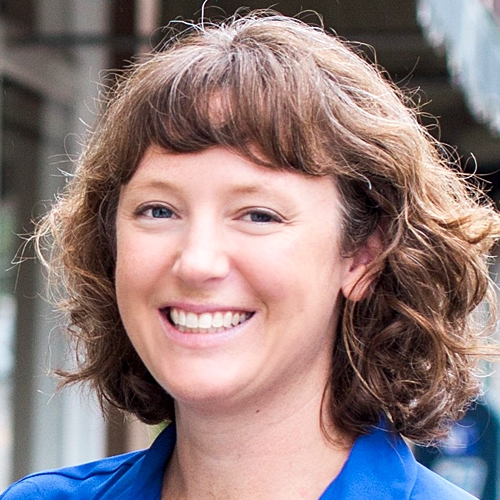

After studying biology at Meredith College in North Carolina, Nicola Singletary, PhD, MAT, IBCLC spent the early part of her career sharing her love of science with middle school students. It was not until after the birth of her first child in 2007 and the challenges she faced breastfeeding that she became interested in pursuing a career in breastfeeding support. She enrolled at North Carolina State University to study human nutrition and completed the Mary Rose Tully Training Initiative through the Carolina Global Breastfeeding Institute at UNC Chapel Hill in 2012. In the fall of 2013, she opened Harmony Lactation, LLC with the goal of helping mothers meet their breastfeeding goals. She recently completed her PhD in Nutrition and is a postdoctoral researcher at NCSU; her research focuses on breastfeeding education. She is also co-owner of Next Level Lactation, an educational and consulting company for lactation professionals.
Topic: Funny Tasting Milk: The Biochemistry and Clinical Applications of Human Milk Oxidation vs. High Lipase Action - [View Abstract]
Objective 1: Assess what is currently known about breastfeeding education in the school setting;
Objective 2: Describe the methods used to investigate North Carolina family and consumer science attitudes and practices relating to infant feeding education in the secondary classroom;
Objective 3: Visualize the results of North Carolina family and consumer science teacher attitudes and practices relating to infant feeding education in the secondary classroom;
Objective 4: Explore available breastfeeding lesson materials for K-12 students;
Objective 5: Discuss the implications of the research on breastfeeding education promotion in schools.
As part of efforts to increase breastfeeding initiation and duration, educational interventions aimed to increase awareness and positive attitudes towards breastfeeding beginning during the school years are recommended by the World Health Organization and UNICEF UK. Breastfeeding education in the school setting offers the opportunity to introduce the topic to a wide range of students from a variety of socioeconomic and cultural backgrounds. The purpose of this presentation is to 1) present a critical review of the literature regarding stakeholder views of breastfeeding education programs in schools, 2) explore ongoing mixed methods research on North Carolina family and consumer science teacher attitudes and practices relating to infant feeding education in the secondary classroom, and 3) make recommendations for opportunities for lactation professionals to promote breastfeeding education in schools.
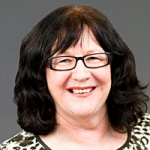

Geraldine has been involved in breastfeeding support and education for 30 years in Ireland. She works in private practice as a Lactation Consultant doing home visits. She has a major interest in Adult Education and she runs Training of Trainer (Lactation) courses for healthcare professionals in Ireland. She tutors for a group called Cuidiú, training both breastfeeding counselors and childbirth educators.She has organized Peer to peer education for other groups in Ireland and abroad. Geraldine has spoken at many conferences both in Ireland and abroad or a range of topics but her choice usually comes back to her interest in Adult education and the theories around learning styles, groupwork, experiential learning and programme development.
Topic: Learning styles – Certainly Not a One Size Fits All - [View Abstract]
Objective 1: List different styles of learning;
Objective 2: Identify theoretical frameworks and theorists of learning styles;
Objective 3: Identify their own learning style and preferences;
Objective 4: Name at least 3 teaching strategies that help with empowering adults learners;
Objective 5: Reflect on their own role in the area of advocacy.
Learning styles can be defined as the cognitive, effective and psychosocial behaviours that can serve as relatively stable indicators of how learners perceive, interact with and respond to a learning environment. Learning styles are just one part of Adult education theory, how do the theories around Androgogy, Transformation learning, Experiential learning and programme development affect those offering education in the world of breastfeeding. In this session, we will explore what we have to understand about how adults learn in order to be able to communicate effectively. We will also explore ways to empower people to understand breastfeeding and their role in advocating for women and babies.
Accreditation
CERPs - Continuing Education Recognition Points GOLD Conferences has been designated as a Long Term Provider of CERPs by the IBLCE--Approval #CLT114-07 Approved for 6 L-CERPs.
If you have already participated in this program, you are not eligible to receive additional credits for viewing it again. Please sent us an email to [email protected] if you have any questions.Tags / Categories
(IBCLC) Education and Communication, (IBCLC) Public Health and Advocacy, Breastfeeding Education
How much time do I have to view the presentations?
- The viewing time will be specified for each product. When you purchase multiple items in your cart, the viewing time becomes CUMULATIVE. Ex. Lecture 1= 2 weeks and Lecture Pack 2 = 4 Weeks, you will have a total of 6 weeks viewing time for ALL the presentations made in that purchase.
- Time for viewing the talks begins once you purchase the product. For Live Webinars & Symposiums, the viewing period begins from when the live event takes place. Presentations can be accessed 24/7 and can be viewed as many times as you like during the viewing period.
What are bundled lectures?
- Presentations may be available individually or via a bundled package. Bundled lectures are a set of lectures that have been put together based on a specific category or topic. Some lectures will be available in both individual and lecture form, whereas others will be available only via a bundled lecture pack.
Will there be Handouts?
- YES! Each lecture comes with a PDF handout provided by the Speaker.
Some lectures include a Q&A, what does that mean?
- During our online conferences, presentations that occur live are also followed by a short 15 minute Question & Answer Session. The Speaker addresses questions that were posted by Delegates during the presentation. We include the recording of these Q&A Sessions as a bonus for you.
How can I receive a Certificate?
- If this presentation offers a certificate, once you are done viewing the lecture or the lectures within a bundle, submit your attendance record in order to be able to download your certificate. You'll be able to see which credits are offered for the lecture by hovering over the "Credits Available" link within the "Speakers & Topics" tab.
Professionals that selected this package also viewed

|
|

|








